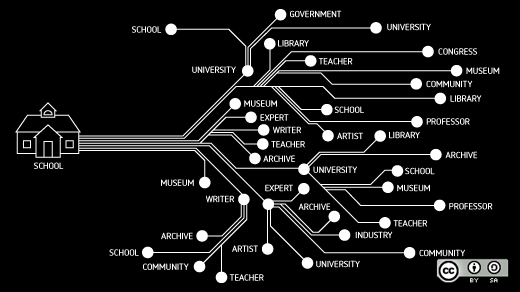What should high schools students be taught about Internet safety? Traditional high school curriculum has followed guidance from the U.S. Children's Internet Protection Act (CIPA). Enacted by Congress in 2000 and updated in 2011, student Internet safety training is a requirement for U.S. schools that receive federal funding from the FCC's E-rate program. Under the terms of CIPA, students must be educated on appropriate online behavior (such as in chat rooms and social networks) and cyberbullying.
To satisfy federal requirements, and in response to traditional local attitudes and opinions, public high school Internet safety curriculum typically addresses a narrow set of cyber safety topics. Commonly referred to under the umbrella of "digital citizenship," instruction often centers on a few common edicts:
- Don't open creepy_attachment.exe!
- Keep your passwords private!
- Don't steal music or software!
- Protect your online reputation!
- Don't post compromising pictures!
Of course, we must work to help kids understand that the technology world can be a complicated and unsafe place. Digital reputation, Internet security, and online self-defense are critical skills for every citizen. However, in a rush to reduce the discussion to popular topics such as cyberbullying, online predators, and chat rooms, many schools have missed larger and more salient issues. Net Neutrality, Snowden's NSA revelations, social data mining, vendor lock-in and control: these fundamental ideas, principles, and values will ultimately shape and direct our students' technology future, and our society.
What should an updated and extended Internet Safety curriculum include? I'd like to suggest critical digital citizenship concepts and associated questions which could serve as essential starting points for 21st century high school classroom debate and discussion:
- Technology origin, ownership, and rights
- Is your device open? Can it be legally modified? What is DRM?
- Who are the developers behind a given project? What are their motivations?
- What are open document formats? Can I read my files 20 years from now?
- What is a software license? Why does it matter?
- What is a technology patent? How do patents help or hinder innovation?
- Technology ethics and privacy
- Who is watching your online behaviors? What is the motivation for doing so? What do they gain? What do you lose?
- If a student researches a gender identity issue, a medical condition, or a controversial book, what becomes of that search history?
- How do social media sites manipulate behaviors? Where is the line between testing features and clinical research requiring consent?
This simple list is by no means exhaustive. What other essential questions should students grapple with? What should be required reading for our youth?







1 Comment